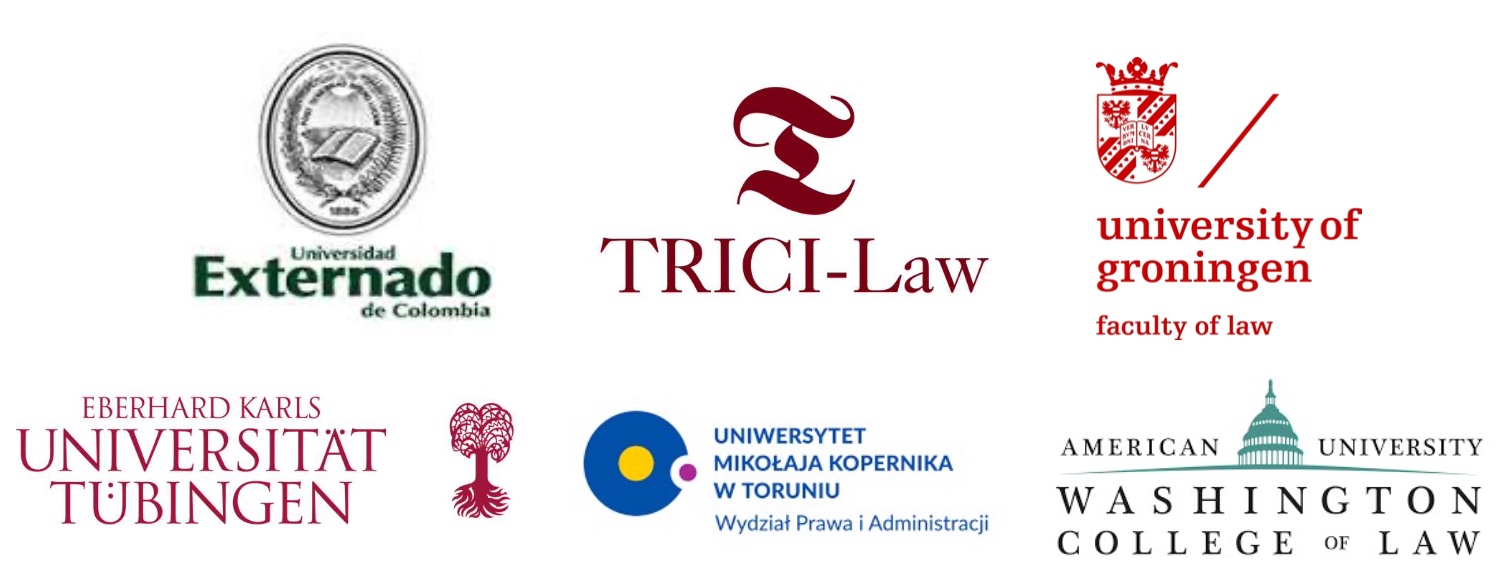By Juliana Carvajal Yepes, Research Fellow, and Deborah Slattery-Pereira, Dean’s Fellow
On September 20 and 21, 2023, the Center on International Commercial Arbitration hosted together with the TRICI-Law Project, and the Universidad Externado de Colombia, a Symposium about "Interpreting the Unwritten Word: Custom and its Interpretation in International Investment Law." The Conference critically discussed topics related to the history, identification, and interpretation of custom in international investment law. Prominent academics from the United States, Europe, India, and Latin America emphasized the role of customary rules for gap-filling and for the progressive development of the international investment regime.
This two-day Conference was began with some remarks by Professor Horacio A. Grigera Naón, Director of the Center on International Commercial Arbitration at WCL, commenting on the continued relevance of customary international rules for the regulation of international investment law. Next, Professor Panos Merkouris offered introductory remarks about the TRICI-Law Project at Groningen University. The purpose of the TRICI-law Project was to explore different perspectives and interpretations of customary international law which constitutes an unwritten source of law. Further Professor Panos highlighted customary international law as an interpretation mechanism, similar to treaties and rules. Thus, the process of interpretation of customary international law should follow certain rules, that can be induced from the case law of international courts and tribunals.
The first panel took a historical approach. The discussion was about how Customary International Law is identified from various perspectives of analysis. Professor Patrick Dumberry presented the historical emergence of the Minimum Standard of Treatment. Professor Diego Mejia addressed the state practice in Investor-State proceedings in connection with Customary International Law. Professors Jose Manuel Alvarez Zarate and Nigel Blackaby lectured about the historical approach to setting damages and the customary assessment of damages in investment-state arbitration. Interestingly enough, the “Alabama Claims” involved a diplomatic conflict between the U.S. and the UK in relation to a set of disputes during the Civil War. This case is considered the genesis of the international arbitration process, as it was one of the first to successfully solve an international dispute through arbitration. The landmark case created an important precedent for investment-state arbitration and customary international law that still today provides inspiration for solving these disputes. Prof. Alvarez Zarate underlined that the Chorzow case’s indication of “full reparation” may not only be considered a manifestation of a customary rule but even a general principle of international law.
The second panel of this Conference was moderated by Professor Bjorn Arp, of the Center on International Commercial Arbitration, and focused on how customary international law played a role in the interpretation of treaties. First, Professor Eric de Brabandere addressed the full protection and security (FPS) standard, which creates an obligation for the host state. Nowadays, FPS could interfere with other protection standards such as fair and equitable treatment standard.. Professor Nina Mileva spoke about her research on different strategies in interpreting the Third World Approach to International Investment Law. The TWAIL tries to strike a balance on the protection of investors' private interests, local communities' human rights, and environmental rights.
In the sequence, Professor Yannick Radi lectured about comparative reasoning in Investor-State arbitration. He addressed how comparative reasoning fits in treaty sources, the canon of treaty interpretation, and the interpretation of investment law agreements. Professor Anastasios Gourgourinis stated subsequent agreements and practices in the interpretation of international law. He mentioned, some tribunals have missed the opportunity to discuss the implications of VCLT Article 31 paragraph 3 (a & b). More precisely, he implied these tribunals have been reluctant to use the VCLT as a tool of interpretation to attempt to “modify” a treaty and change its application.
The third panel focused on the Interpretation of Secondary Rules in International Investment Law. Professor Anna Ventouratou addressed the countermeasures in investment arbitration under customary law to justify breaches. She argued that the state responsibility articles were intended as rules applicable to all states and in every international context, and that international investment arbitration has contributed greatly to test these articles in practice. Professor Marina Fortuna lectured about the interpretation of secondary rules in international investment law, specifically, about recent developments in attribution. Professor Sotirious-Ioannis Lekkas spoke about the usefulness of the concept of state responsibility. According to his view, the main problem is that the concept is not binding. As a consequence, although arbitral tribunals have justified the use of such a concept in prior awards, they are not obliged to do so, o nor to analyze or justify its application. Problems with justifications and liberal approaches by arbitral tribunals are concerning from the perspective of interpretation. Finally, Emanuel Giakoumakis presented the equitable considerations in the assessment of damages.
The fourth panel discussed current “hot topics” on custom and its interpretation. First, Professor Filip Balcerzak addressed the topic of natural resources (mining sector, energy sector, and renewable energy) and its relation to customs in international investment law remedies. With respect to remedies, he stated that the investment tribunals do not tend to award restitution. He expressed the view that it may be possible that compensation only be paid if restitution is not awarded within a specific period of time. Professor Enrique Prieto-Rios presented the hull formula and third-world perspective on the accepted standard of compensation. His view is that the current international investment law regime was created after the colonization era as a way for the colonizers to maintain control of the former colonies. He spoke about the concept of epistemic superiority that granted the Western nations “the normative monopoly”, allowing them to set normative standards. Professor Oliver Hailes spoke about rebutting the presumption of reasonable regulation. In a nutshell, Professor Oliver described that there is no state responsibility for reasonable regulation of foreign state investments (i.e., police powers). The same argument remains true today as envisioned in many cases emerging after the pandemic. Finally, Professor Madhav Mallya spoke about bilateral treaties and investor obligations in investment treaties. He pointed out that there were not many treaties that included investor’s obligations.
